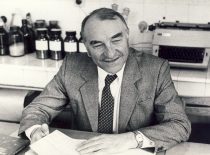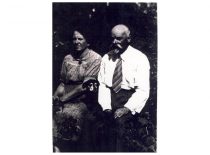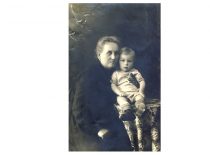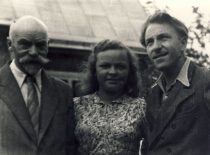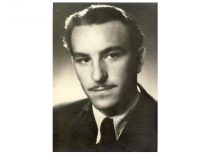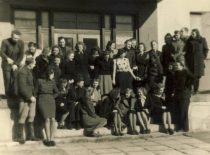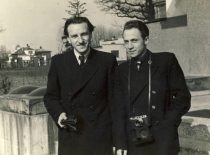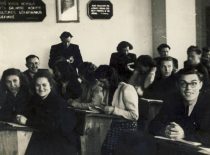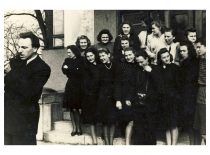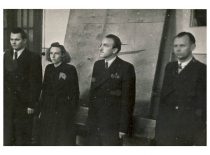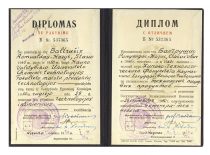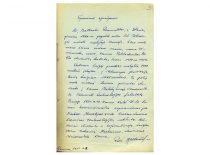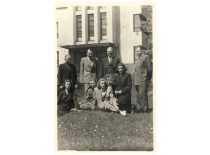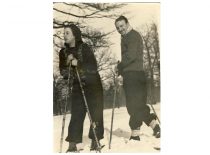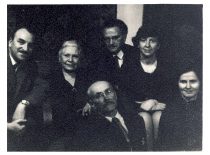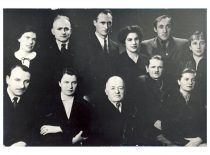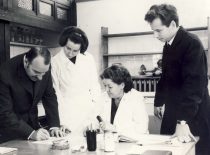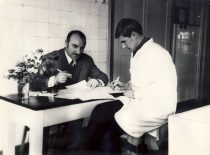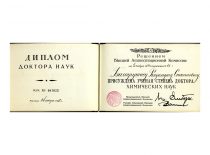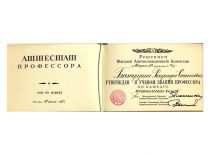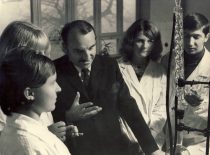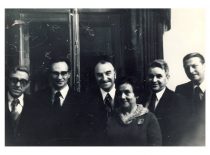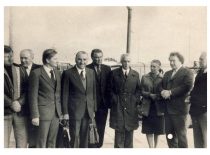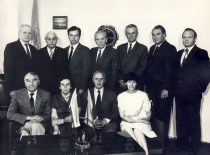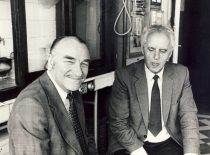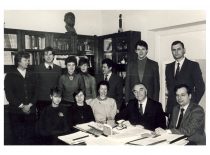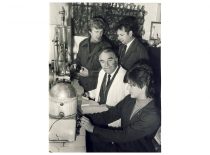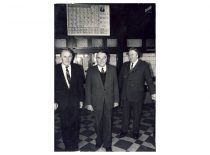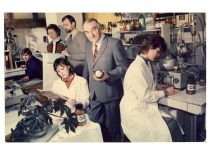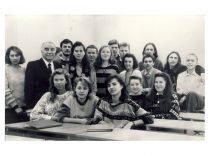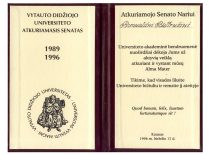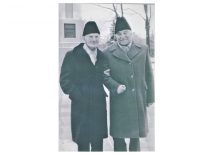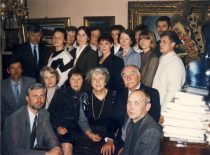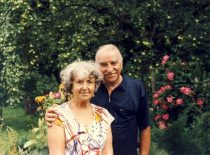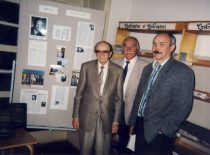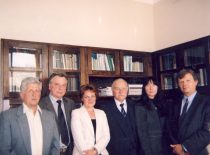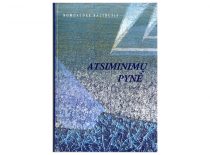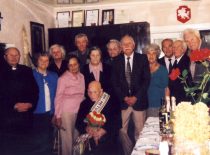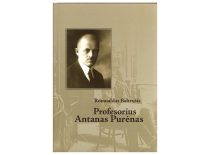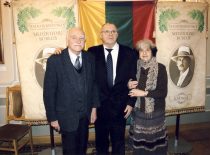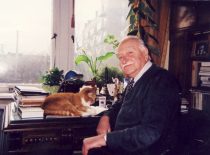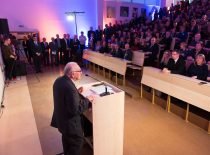Founder of the School of Science in Lithuania
From 1952, R. Baltrušis continued research works at the Department of Organic Chemistry at the Faculty of Chemical Technology of Kaunas Polytechnic Institute managed by the Academic Antanas Purėnas. R. Baltrušis was researching the synthesis of β-amino acids and their derivatives. In 1954, he defended the dissertation of the candidate in chemical sciences “Synthesis and Variations of N-aril-β-amino Acids” and in 1970, the doctoral dissertation in chemical sciences (nostrified as the habilitated doctor in 1993) dedicated to the synthesis of N-aryl-, N-pyridyl, N-chinolil-β-alanines and their variations into the pyrimidine derivatives. In 1973, the title of professor was awarded to him. In 1980, R. Baltrušis was elected as the head of the Department of Organic Chemistry. He was the head of this department until 1990. Prof. R. Baltrušis developed research in several fields. In 1980, he founded the Growth Stimulants Laboratory where he gathered and led a team of scientists who synthesised approximately 1000 new organic compounds. Some of them were distinguished by bioactivity and named “stilites”. They stimulated the growth of agricultural cultures, increased the production potential; therefore, they were successfully applied in agriculture. Another research field of R. Baltrušis is the synthesis of hydrogenated pyrimidine derivatives and their application for the stabilisation of thermo-oxidative destruction of some polymers. The work of this scientist and educator was particularly successful – 130 scientific papers, 49 copyright certificates, almost 40 science promotion papers, preparation of 6 doctors of science and 2 habilitated doctors of science.
In his long years of pedagogical work, the professor gave lectures to students on the subjects of organic chemistry, bioorganic chemistry, polymer physics and chemistry, polymer chemistry, wood and cellulosic chemistry. In 1985, he won the competition of the Best Lecturer of KPI. Prof. R. Baltrušis, alone and with co-authors, prepared and published teaching methodological tools, 3 textbooks, a monograph, translated “Practical Works of Organic Chemistry” by V. Radionov in cooperation with F. Staniulis. In 1975, the Lithuanian National Prize was awarded to R. Baltrušis (and others) for the textbooks “Chemistry of High-Molecular Compounds” and “Organic Chemistry” Parts 1 and 2. In 1986, R. Baltrušis was awarded the title of honoured scientist of Lithuania. While giving lectures during the Soviet occupation, prof. R. Baltrušis found the occasions to make students pay attention to their Homeland and notice the actions of the occupants destroying the nation: he was telling the students who graduated from Vytautas Magnus University in independent Lithuania, mentioning the laboratories in the USA named after these scientists, showing them how much Lithuanians could achieve in the country was independent.


